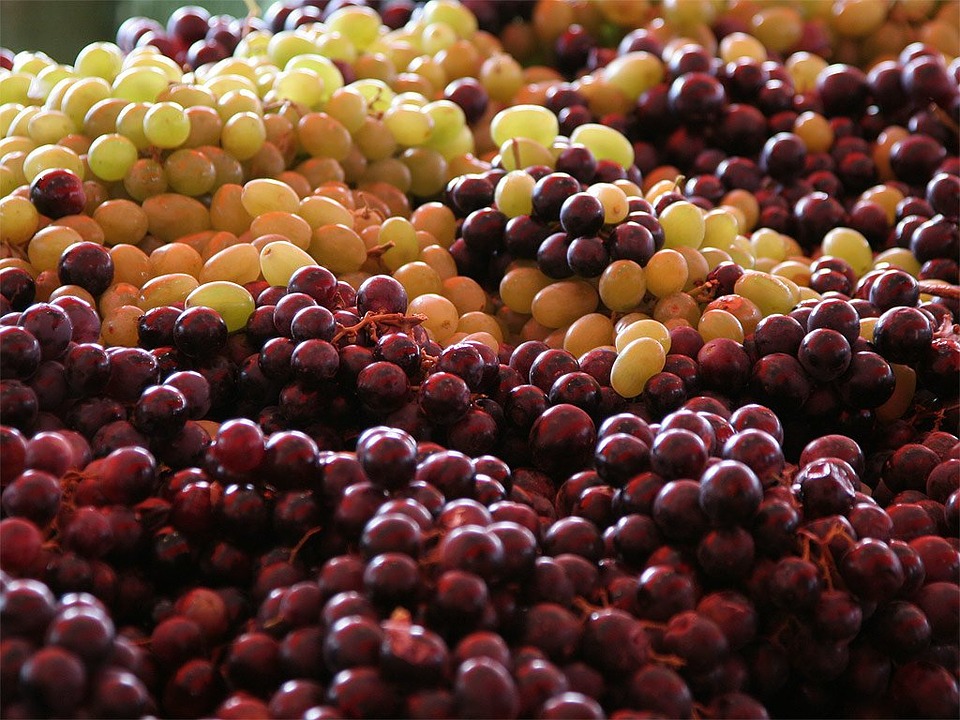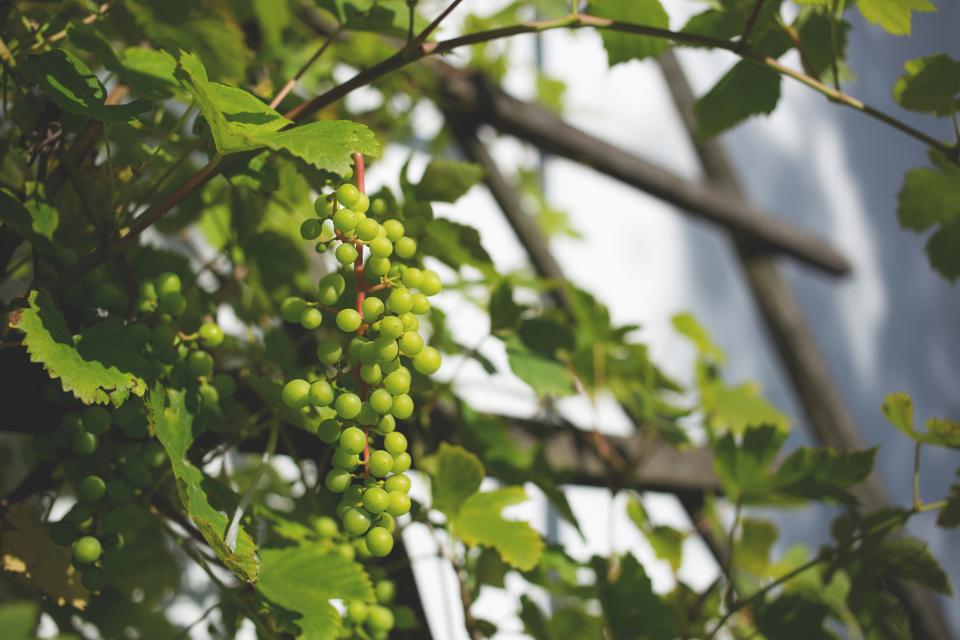This article delves into the question of whether cats can safely consume grapes. We'll explore the potential risks associated with grape consumption by cats, delve into the reasons why grapes are considered toxic, examine the symptoms of grape poisoning, and discuss the importance of seeking veterinary attention promptly if your cat has ingested grapes. This comprehensive guide will equip you with the knowledge necessary to ensure the safety of your feline companion.
Part 1: The Perils of Grapes for Cats

1.1: Grape Toxicity in Cats
Grapes, both fresh and dried (raisins), are considered toxic to cats. The exact mechanism by which grapes cause toxicity in cats is not fully understood, but it is believed to involve a substance or combination of substances that damage the kidneys. While the specific toxic compound remains unidentified, research suggests it could be related to the presence of oxalates, tannins, or other yet-to-be-discovered compounds.
1.2: The Severity of Grape Poisoning
The severity of grape poisoning in cats can vary depending on several factors, including:
- The amount of grapes consumed: Even a few grapes can be enough to cause serious problems, especially in smaller cats.
- The size of the cat: Smaller cats are generally more susceptible to grape toxicity due to their smaller body mass.
- The overall health of the cat: Cats with pre-existing kidney conditions or other health problems may be more vulnerable to grape poisoning.
- The time elapsed since ingestion: The sooner veterinary attention is sought after grape ingestion, the better the chances of a positive outcome.
1.3: The Danger of Raisins
Raisins, which are dried grapes, are even more concentrated in potential toxins. Therefore, raisins pose an even greater risk to cats than fresh grapes.
1.4: The Importance of Prevention
The best approach to protecting your cat from grape poisoning is to prevent them from consuming grapes in the first place. Keep grapes out of reach, dispose of grape-related waste properly, and educate all household members about the dangers of grapes for cats.
Part 2: Symptoms of Grape Poisoning in Cats

Recognising the symptoms of grape poisoning is crucial for timely veterinary intervention. Here are some common signs to look out for, noting that not all cats will exhibit all symptoms:
2.1: Early Signs
- Vomiting: This is one of the most common signs of grape poisoning and may occur within a few hours of ingestion.
- Diarrhoea: Diarrhoea can also be present and may be accompanied by vomiting.
- Loss of appetite: Your cat may refuse to eat, which can be a significant indicator of illness.
- Lethargy: Your cat may appear sluggish and less active than usual.
- Increased thirst: As the kidneys become affected, your cat may drink more water than usual.
2.2: Later Signs
- Abdominal pain: Your cat may show signs of discomfort, such as hunching, crying out, or avoiding being touched in the abdominal area.
- Increased urination: Due to kidney damage, your cat may urinate more frequently or have difficulty urinating.
- Weakness: Your cat may appear unsteady on its feet and have difficulty walking.
- Dehydration: If vomiting and diarrhoea persist, your cat may become dehydrated, leading to lethargy, sunken eyes, and decreased skin elasticity.
2.3: Severe Signs
- Kidney failure: This is a serious complication of grape poisoning and can be life-threatening.
- Coma: If kidney failure progresses, your cat may become comatose.
- Death: In severe cases, grape poisoning can lead to death, especially if it is not treated promptly.
Part 3: Preventing Grape Poisoning in Cats

Preventing grape poisoning is paramount. Here are some essential tips to implement in your home:
3.1: Keep Grapes Out of Reach
Store grapes in airtight containers or out of reach of your cat, preferably in a cupboard or high shelf. Ensure that any grapes brought into the home are immediately placed in a secure location.
3.2: Be Mindful of Waste
Dispose of grape-related waste carefully, ensuring your cat cannot access discarded grape skins, stems, or seeds. Use sealed bins for trash and avoid leaving grapes on countertops or in open containers.
3.3: Educate Family Members
Educate all household members, including children, about the dangers of grapes for cats. Encourage them to keep grapes away from your cat and to supervise any interactions between your cat and grapes or grape-containing foods.
3.4: Supervise Interactions
Supervise your cat closely during any interactions with grapes or grape-containing foods. Even if your cat shows no interest in grapes, it's best to be cautious and prevent any potential accidental ingestion.
Part 4: What to Do If Your Cat Eats Grapes
If you suspect your cat has ingested grapes, prompt action is crucial. Time is of the essence when it comes to grape poisoning, as early intervention can significantly improve the chances of a positive outcome.
4.1: Contact Your Vet Immediately
Don't delay; call your veterinarian as soon as possible. They will assess the situation and advise on the appropriate course of action. Even if your cat seems fine, it's important to seek professional advice.
4.2: Provide Information to Your Vet
Be prepared to provide your veterinarian with the following information:
- The amount of grapes consumed: Estimate the number of grapes or the size of the raisins your cat ingested, if possible.
- The time of ingestion: Note when your cat consumed the grapes or raisins.
- Any observed symptoms: Describe any signs of illness your cat is exhibiting.
4.3: Follow Veterinary Instructions
Follow your veterinarian's instructions carefully, which may include:
- Inducing vomiting: Your vet may advise inducing vomiting, especially if your cat has ingested grapes within a few hours.
- Administering activated charcoal: Activated charcoal can bind to toxins in the digestive system, reducing their absorption.
- Monitoring your cat closely: Your vet may recommend close monitoring at home or hospitalization for observation and treatment, depending on the severity of the situation.
Part 5: The Science Behind Grape Toxicity
While the exact mechanism of grape toxicity in cats remains unclear, research suggests several possibilities:
5.1: Oxalic Acid Hypothesis
One theory proposes that grapes contain high levels of oxalic acid, which can form kidney stones and interfere with kidney function. Oxalic acid binds to calcium in the body, preventing its absorption and potentially leading to kidney damage. However, the exact role of oxalic acid in grape toxicity in cats needs further investigation.
5.2: Other Toxins
Other researchers believe that grapes contain other unidentified toxins that damage the kidneys. These toxins could be specific to grape varieties, ripeness, or processing methods.
5.3: Ongoing Research
Further research is needed to fully understand the specific toxins responsible for grape poisoning in cats. Scientists are actively studying grape components to identify the culprit and develop effective treatments.
Part 6: Grape Substitutes for Cats
Cats require a diet rich in animal protein, not fruit. Here are some healthy alternatives to grapes that your cat will enjoy:
6.1: Meat-Based Treats
Offer your cat commercially prepared meat-based treats or home-made options like chicken, turkey, or fish. Be sure to choose treats that are specifically designed for cats and avoid any ingredients that could be harmful to your feline companion.
6.2: Catnip
Catnip can be a safe and enjoyable treat for many cats, offering both sensory stimulation and mental enrichment. Ensure you use fresh or dried catnip and avoid any chemical additives.
6.3: Cat Grass
Cat grass, such as wheatgrass or oat grass, provides a healthy source of fibre and can help with digestion. Cat grass can also be a safe and enjoyable option to satisfy your cat's chewing instincts.
Part 7: Alternative Fruits for Cats
While grapes are toxic, there are a few fruits that cats can safely consume in moderation:
7.1: Blueberries
Blueberries are a good source of antioxidants and are generally safe for cats in small quantities. However, avoid giving them the stems or leaves, which can be toxic.
7.2: Strawberries
Strawberries can also be a healthy treat for cats in moderation, providing vitamin C and fibre. Ensure they are washed thoroughly and given in small pieces to avoid choking.
7.3: Melon
Watermelon and cantaloupe are safe for cats, but ensure the seeds are removed as they can be a choking hazard. These fruits are a good source of hydration, especially during warm weather.
Part 8: FAQs:
8.1: Can cats eat grapes if they are cooked?
No, cooked grapes are still considered toxic to cats. The cooking process does not eliminate the toxic substances.
8.2: What if my cat ate only a small amount of grapes?
Even small amounts of grapes can be dangerous for cats, and it's still crucial to contact your veterinarian for guidance. Your vet will assess the situation and provide tailored advice based on the amount ingested and the cat's overall health.
8.3: Can I give my cat a small piece of grape as a treat?
No, it's best to avoid giving your cat any grapes, even in small amounts, due to the potential for toxicity. Stick to safe and healthy treats designed for cats.
8.4: How long does it take for grape poisoning to show up in cats?
Symptoms of grape poisoning can manifest within a few hours to several days after ingestion. The time frame can vary depending on the amount consumed and individual cat factors.
8.5: Can grapes cause other problems besides kidney failure?
While kidney failure is the most serious complication, grapes can also cause gastrointestinal upset, vomiting, and diarrhoea. These symptoms may precede kidney damage, highlighting the importance of prompt veterinary attention.
8.6: Is there a specific antidote for grape poisoning in cats?
There is no specific antidote for grape poisoning. Treatment focuses on supporting the cat's kidney function and managing symptoms. This may include intravenous fluids to prevent dehydration, medications to control vomiting, and other supportive measures.
8.7: What if my cat has eaten grapes but seems fine?
It's crucial to still contact your veterinarian even if your cat doesn't show any immediate symptoms. Early intervention is vital, as kidney damage may not manifest immediately. Your vet can monitor your cat closely and advise on further actions.
Everyone is watching
-

Are Cat Ribs Flexible? Understanding Their Anatomy
CATS & KITTENSThis article delves into the fascinating world of feline anatomy, exploring the flexibility of cat ribs and ho...
-

Can Cats Eat Bananas? (Everything You Need to Know)
CATS & KITTENSThis article dives into the intriguing question of whether cats can safely enjoy the sweet, yellow fruit, bana...
-

Cat Lifespan: How Long Do Cats Live?
CATS & KITTENSThis comprehensive guide explores the factors influencing the lifespan of our feline companions, providing ins...
-

Can Cats Get COVID-19? What You Need to Know
CATS & KITTENSThis article will delve into the fascinating world of feline COVID-19 susceptibility. We'll explore whether ca...
-

Can Cats Eat Eggs? A Complete Guide to Egg Safety for Your Feline Friend
CATS & KITTENSWhen it comes to treating our furry companions, we all want to ensure we're doing what's best for them. Eggs...
